
Breakfast cereal is a breakfast food made from processed cereal grains. It is traditionally eaten as part of breakfast, or a snack food, primarily in Western societies.

Charles William Post was an American innovator, breakfast cereal and foods manufacturer and a pioneer in the prepared-food industry. He was the founder of what is now Post Consumer Brands.

Corn flakes, or cornflakes, are a breakfast cereal made from toasting flakes of corn (maize). Originally invented as a breakfast food to counter indigestion, it has become a popular food item in the American diet.
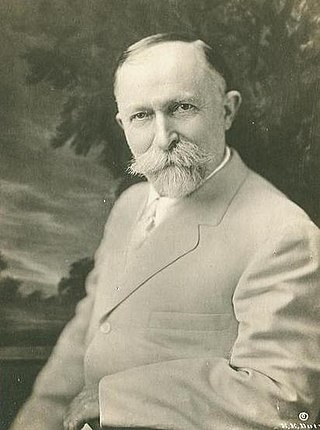
John Harvey Kellogg was an American businessman, inventor, physician, and advocate of the Progressive Movement. He was the director of the Battle Creek Sanitarium in Battle Creek, Michigan, founded by members of the Seventh-day Adventist Church. It combined aspects of a European spa, a hydrotherapy institution, a hospital and high-class hotel. Kellogg treated the rich and famous, as well as the poor who could not afford other hospitals. According to Encyclopædia Britannica, his "development of dry breakfast cereals was largely responsible for the creation of the flaked-cereal industry."
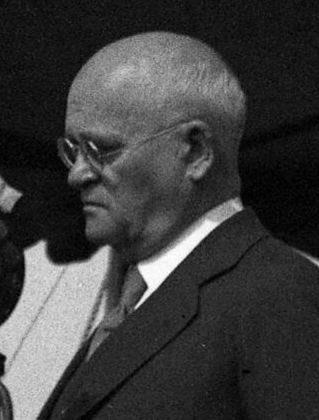
Will Keith Kellogg was an American industrialist in food manufacturing, who founded the Kellogg Company, which produces a wide variety of popular breakfast cereals. He was a member of the Seventh-day Adventist Church and practiced vegetarianism as a dietary principle taught by his church. He also founded the Kellogg Arabian Ranch, which breeds Arabian horses. Kellogg was a philanthropist and started the Kellogg Foundation in 1934 with a $66-million donation.

The Sanitarium Health and Wellbeing Company is the trading name of two sister food companies. Both are wholly owned by the Seventh-day Adventist Church.

Postum is a powdered roasted grain beverage popular as a coffee substitute. The caffeine-free beverage was created by Post Cereal Company founder C. W. Post in 1895 and marketed as a healthier alternative to coffee. Post was a student of John Harvey Kellogg, who believed that caffeine was unhealthy. Post Cereal Company eventually became General Foods, then merged to Kraft Foods Inc. in 1990. Eliza's Quest Foods now owns the trademark rights and secret recipe of Postum.
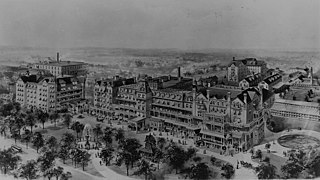
The Battle Creek Sanitarium was a world-renowned health resort in Battle Creek, Michigan, United States. It started in 1866 on health principles advocated by the Seventh-day Adventist Church and from 1876 to 1943 was managed by Dr. John Harvey Kellogg.

John Allen Burden (1862–1942) was an American Seventh-day Adventist minister, administrator, and medical missionary instrumental in founding sanitariums, restaurants, and health food factories. At the age of 9, John attended Adventist meetings for the first time and was introduced to the writings of Ellen G. White, which left a lifelong impression upon him. Five years later he was baptized, and at the age of 18 (1880) moved with his family to Oregon. John met Eleanor A. Baxter (1865–1933) as a student at Healdsburg College. They were married in 1888 while working for the Rural Health Retreat, of which John became manager in 1891.

The Road to Wellville is a 1994 American comedy-drama film written, produced and directed by Alan Parker, an adaptation of T. Coraghessan Boyle's novel of the same name, which tells the story of the doctor and clean-living advocate John Harvey Kellogg and his methods employed at the Battle Creek Sanitarium at the beginning of the 20th century.
American Medical Missionary College was a private Seventh-day Adventist college in Battle Creek, Michigan. It grew out of classes offered at the Battle Creek Sanitarium. It existed from 1895 until 1910, with preclinical instruction in Battle Creek and further clinical training in Chicago, Illinois. In the latter year it was merged with the College of Physicians and Surgeons of Chicago (P&S), which in turn became the University of Illinois College of Medicine on March 6, 1913.

Battle Creek is a city in the U.S. state of Michigan, in northwest Calhoun County, at the confluence of the Kalamazoo and Battle Creek rivers. It is the principal city of the Battle Creek, Michigan Metropolitan Statistical Area (MSA), which encompasses all of Calhoun County. As of the 2020 census, the city had a total population of 52,731. Nicknamed "Cereal City", it is best known as the home of WK Kellogg Co and the founding city of Post Consumer Brands.
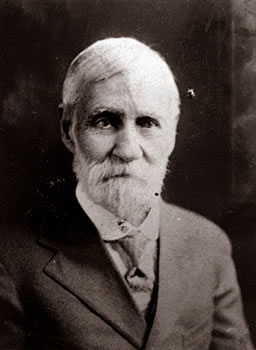
Merritt Gardner Kellogg was a Seventh-day Adventist (SDA) carpenter, missionary, pastor and doctor who worked in Northern California, the South Pacific, and Australia. He designed and built several medical facilities. Kellogg was involved in the controversy about which day should be observed as the Sabbath on Tonga, which lies east of the 180° meridian but west of the International Date Line. He was the brother of John Harvey Kellogg.

Ella Eaton Kellogg was an American dietitian known for her work on home economics and vegetarian cooking. She was educated at Alfred University ; and the American School Household Economics (1909). In 1875, Kellogg visited the Battle Creek Sanitarium, became interested in the subjects of sanitation and hygiene, and a year later enrolled in the Sanitarium School of Hygiene. Later on, she joined the editorial staff of Good Health magazine, and in 1879, married Dr. John Harvey Kellogg, superintendent of the Battle Creek Sanitarium.
The Race Betterment Foundation was a eugenics and racial hygiene organization founded in 1914 at Battle Creek, Michigan by John Harvey Kellogg due to his concerns about what he perceived as "race degeneracy". The foundation supported conferences, publications, and the formation of a eugenics registry in cooperation with the ERO. The foundation also sponsored the Fitter Families Campaign from 1928 to the late 1930s and funded Battle Creek College. The foundation controlled the Battle Creek Food Company, which in turn served as the major source for Kellogg's eugenics programs, conferences, and Battle Creek College. In his will, Kellogg left his entire estate to the foundation. In 1947, the foundation had over $687,000 in assets. By 1967, the foundation's accounts were a mere $492.87. In 1967, the state of Michigan indicted the trustees for squandering the foundation's funds and the foundation closed.

The Phelps Sanitarium, later known as the Battle Creek Sanitarium, was a health care facility located at 197 N. Washington Avenue in Battle Creek, Michigan. The building was demolished in 1985.

Lenna Frances Cooper was an American dietitian and co-founder of the Academy of Nutrition and Dietetics. She has been called “a pioneer in vegetarian nutrition and dietetics.”
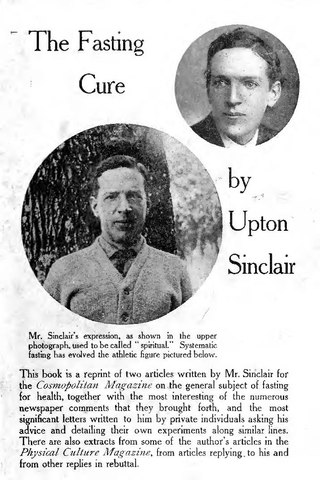
The Fasting Cure is 1911 nonfiction book on fasting by Upton Sinclair. It is a reprinting of two articles written by Sinclair which were originally published in the Cosmopolitan magazine. It also includes comments and notes to the articles, as well as extracts of articles Sinclair published in the Physical Culture magazine. The book is dedicated to Bernarr Macfadden.

WK Kellogg Co is an American food manufacturing company, split from Kellogg's on October 2, 2023 and is headquartered in Battle Creek, Michigan. It was formed in October 2023 as part of Kellogg's hive-off of its North American cereal business.

















